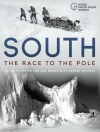Neil Simon (1927–2018) began as a writer for some of the leading comedians of the day—including Jackie Gleason, Red Buttons, Phil Silvers, and Jerry Lewis—and he wrote for fabled television programs alongside a group of writers that included Mel Brooks, Woody Allen, Larry Gelbart, Michael Stewart, and Sid Caesar. After television, Simon embarked on a playwriting career. In the next four decades he saw twenty-eight of his plays and five musicals produced on Broadway. Thirteen of those plays and three of the musicals ran for more than five hundred performances. He was even more widely known for his screenplays—some twenty-five in all.
Yet, despite this success, it was not until his BB Trilogy—
Brighton Beach Memoirs,
Biloxi Blues, and
Broadway Bound—that critics and scholars began to take Simon seriously as a literary figure. This change in perspective culminated in 1991 when his play
Lost in Yonkers won the Pulitzer Prize for Drama.
In the twenty-two interviews included in
Conversations with Neil Simon, Simon talks candidly about what it was like to write commercially successful plays that were dismissed by critics and scholars. He also speaks at length about the differences between writing for television, for the stage, and for film. He speaks openly and often revealingly about his relationships with, among many others, Mike Nichols, Walter Matthau, Sid Caesar, and Jack Lemmon. Above all, these interviews reveal Neil Simon as a writer who thought long and intelligently about creating for stage, film, and television, and about dealing with serious subjects in a comic mode. In so doing,
Conversations with Neil Simon compels us to recognize Neil Simon’s genius.
Über den Autor
Ben Siegel (1925–2010) was professor of English at California State Polytechnic University in Pomona. He is coauthor (with Joseph Gaer) of The Puritan Heritage: America’s Roots in the Bible and coeditor (with Jackson R. Bryer) of Conversations with Neil Simon and (with Gloria L. Cronin) of Conversations with Robert Penn Warren and Conversations with Saul Bellow, the latter three published by University Press of Mississippi.












